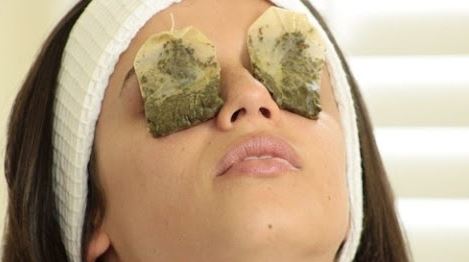Tea and eye health | |

| |
Good vision is a precious asset, and taking care of our eyes is essential for maintaining optimal eye health. While a healthy lifestyle and regular eye check-ups are vital, research suggests that certain types of tea may offer potential benefits in supporting eye health. In this article, we will explore the relationship between tea and eye health, delving into the potential impact and the scientific evidence behind it. Understanding Eye Health and Common ConcernsBefore we delve into the impact of tea on eye health, let's briefly understand the basics of eye health and common concerns: Our eyes are intricate organs that enable us to see the world around us. However, factors such as aging, prolonged digital screen exposure, oxidative stress, and poor nutrition can contribute to eye-related concerns like dryness, fatigue, and age-related macular degeneration (AMD). Maintaining good eye health is crucial for clear vision and overall well-being. The Potential Benefits of Tea on Eye HealthSeveral types of tea have been studied for their potential impact on eye health. Let's explore some of the most notable ones: 1. Green TeaGreen tea is renowned for its rich antioxidant content, including compounds like catechins and polyphenols. These antioxidants may help protect the eyes from oxidative stress and damage caused by harmful free radicals. Green tea has also been associated with a reduced risk of certain eye conditions, including cataracts and AMD. 2. Bilberry TeaBilberry tea is derived from the European bilberry fruit, which is packed with anthocyanins, antioxidants that provide the fruit's deep purple color. These anthocyanins have been shown to support eye health by improving blood circulation to the eyes, enhancing night vision, and reducing the risk of certain eye disorders. 3. Rooibos TeaRooibos tea, also known as red bush tea, is rich in antioxidants, including aspalathin and quercetin. These antioxidants possess anti-inflammatory and immune-boosting properties that may help alleviate eye inflammation and protect against age-related eye diseases. Frequently Asked Questions (FAQs)Let's address some common questions related to tea and its impact on eye health:
ConclusionWhile tea may not be a magical solution for perfect vision, incorporating certain teas into a balanced lifestyle can contribute to supporting eye health. The antioxidants and beneficial compounds found in green tea, bilberry tea, and rooibos tea have shown potential in protecting against oxidative stress, reducing the risk of age-related eye conditions, and promoting overall eye well-being. Remember, tea is just one piece of the puzzle—maintaining good eye health also requires regular eye check-ups, protective measures, a nutrient-rich diet, and healthy lifestyle habits. Consult with an eye care professional for personalized advice and recommendations. | |
| Views: 224 | | |
| Total comments: 0 | |